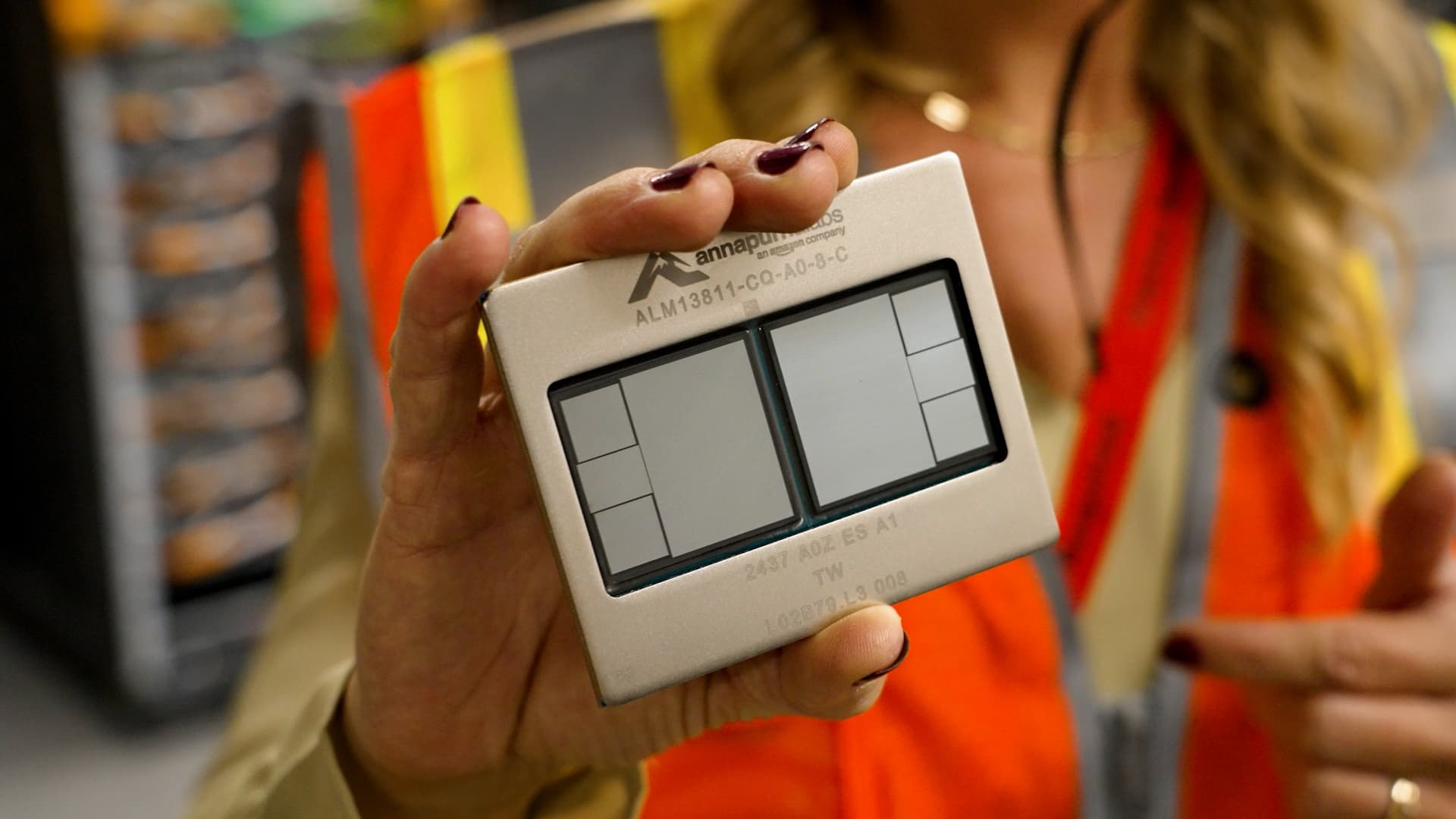So, Everyone’s Popping Champagne for Nvidia. Are We All Suckers?
You bet we are. Look, you see the headlines screaming about Nvidia’s ‘off the charts’ sales and soaring profits, and sure, Jensen Huang is probably doing victory laps in his solid gold-plated cyber-truck right now. The whole world is fawning over them, acting like they’re the undisputed kings of the AI revolution, the one and only game in town for the silicon that powers our future robot overlords. They had a great quarter. Fantastic.
But that’s the sideshow. That’s the shiny object they want you to stare at while the real heist goes down in the shadows.
The tea is this: Nvidia’s biggest customers, the absolute behemoths of the tech world like Google and Amazon, are smiling to their face while sharpening knives behind their back. They’re done writing billion-dollar checks to the leather-jacket-wearing middleman. They’re building their own weapons for this war. And nobody seems to notice. The market is cheering for a king whose throne is already being sawed out from under him.
Total madness.
Wait, Google Makes Chips? Since When?
Oh, honey, bless your heart. This isn’t new. This is the juiciest part of the gossip that the mainstream finance nerds seem to forget. Google has been quietly, almost sinisterly, designing its own custom AI chips, called Tensor Processing Units or TPUs, for nearly a decade! They’ve been using them in-house to power everything from your creepy-good photo search to the AI that finishes your sentences in Gmail.
Their Secret Weapon
Think about it. While Nvidia was out there, basking in the spotlight, selling to everyone and their mother, Google was playing the long game. They were gathering data. They were learning exactly what they needed from a chip. They weren’t building a general-purpose tool to sell to the masses; they were forging a perfectly tailored key for their own kingdom, a key that is way, way more efficient for their specific AI workloads than anything Nvidia can offer off the shelf.
They weren’t just building a chip; they were building an entire ecosystem from the ground up, an ecosystem designed to lock Nvidia out completely. This isn’t a new product launch. This is the culmination of a decade-long plot to seize control of their own destiny and, not coincidentally, cut a massive supplier out of the picture. Savage.
But Can Anyone *Really* Dethrone the King? Nvidia is Unstoppable!
Unstoppable? Please. That’s what they said about Blockbuster. About Nokia. About every single empire right before it crumbled. The biggest threat to a king isn’t another king; it’s the quiet council of ‘allies’ who decide they don’t need him anymore. And that’s exactly what is happening right here, right now, in the most dramatic Silicon Valley backstabbing we’ve seen in years.
The Supplier’s Curse
Nvidia is in the classic, and fatal, position of being the main supplier to its own future competitors. Every single time Google or Amazon or Microsoft bought a truckload of Nvidia’s H100 GPUs, they weren’t just training an AI model. They were studying. They were reverse-engineering. They were learning Nvidia’s strengths and, more importantly, its weaknesses, all on Nvidia’s dime. It’s the ultimate irony.
Jensen Huang is selling shovels in a gold rush, but his biggest customers are taking those shovels, melting them down, and forging them into swords. They know that relying on an outside supplier for the single most critical component of their future business is corporate suicide. Why pay a premium to Nvidia when you can design a chip in-house that does exactly what you need, only faster, cheaper, and with a fraction of the power consumption? You wouldn’t. And they aren’t.
The ground is shifting from a hardware battle to an efficiency war, and Nvidia is bringing a sledgehammer to a surgeon’s table.
What’s This ‘Compute Efficiency’ Thing? Sounds Boring.
Boring? It’s the whole damn story! It’s the secret password to the future of AI, and Google figured it out ages ago. This isn’t about who has the biggest, baddest chip that can bench-press a planet. That’s old thinking. That’s a gas-guzzling muscle car. Loud. Impressive. And wildly impractical for the long haul.
The real AI battle, the one that will determine who owns the next twenty years of technology, is about who can get the most intelligence for the least amount of energy and cost. It’s about performance per watt. It’s about building a silent, terrifyingly efficient electric hypercar.
The Real Battleground
Think of it this way: AI is incredibly expensive. Running these massive models costs a fortune in electricity and cooling. A company like Google, which runs AI at a planetary scale, sees those electricity bills. They see the data center costs. For them, a chip that is 30% more efficient isn’t just a small improvement; it’s a game-changer that saves them billions. Billions!
That’s where Google’s TPUs come in. They are custom-built for one thing and one thing only: running Google’s AI models with ruthless efficiency. They strip out all the extra stuff that Nvidia’s GPUs need for, you know, graphics, and focus purely on the math that powers AI. It’s a specialized assassin versus a jack-of-all-trades. In a street fight, the assassin wins every time. Google is betting its entire future on the idea that smarter, more efficient integration of software and custom hardware will beat raw, brute-force power. And they are right.
So What’s the Endgame? Who Gets Left in the Dust?
Honey, we’re headed for a bloodbath. A complete and total realignment of power in the tech world. The idea of a single, dominant ‘AI chip’ company is going to seem laughably outdated in five years.
The Great Unbundling
Here’s the prophecy: The biggest cloud players—Google (with TPUs), Amazon (with its Trainium and Inferentia chips), and Microsoft (with Maia)—will become almost entirely self-sufficient. They will optimize their entire software stack for their own custom silicon, creating a closed-loop ecosystem that is so efficient and so integrated that it will be foolish for their customers to use anything else. They will offer AI services for pennies on the dollar compared to anyone relying on expensive Nvidia hardware.
Where does that leave Nvidia? They get relegated. They become a merchant seller of chips to the ‘little guys’—the startups, the smaller companies, the researchers who can’t afford to design their own silicon. They’ll go from being the king of the castle to the guy selling swords outside the gate. Still a profitable business, sure, but a massive, massive step down in power and influence. Their halo will be gone.
The real winner here is the company that controls the entire chain, from the silicon in the server to the cloud platform to the AI model itself. That sounds a lot like Google, doesn’t it? They’re not just fighting a chip war; they’re fighting a war for total AI supremacy. And while everyone is distracted by Nvidia’s flashy earnings report, Google is quietly moving its tanks into position for the final assault.
Checkmate.


